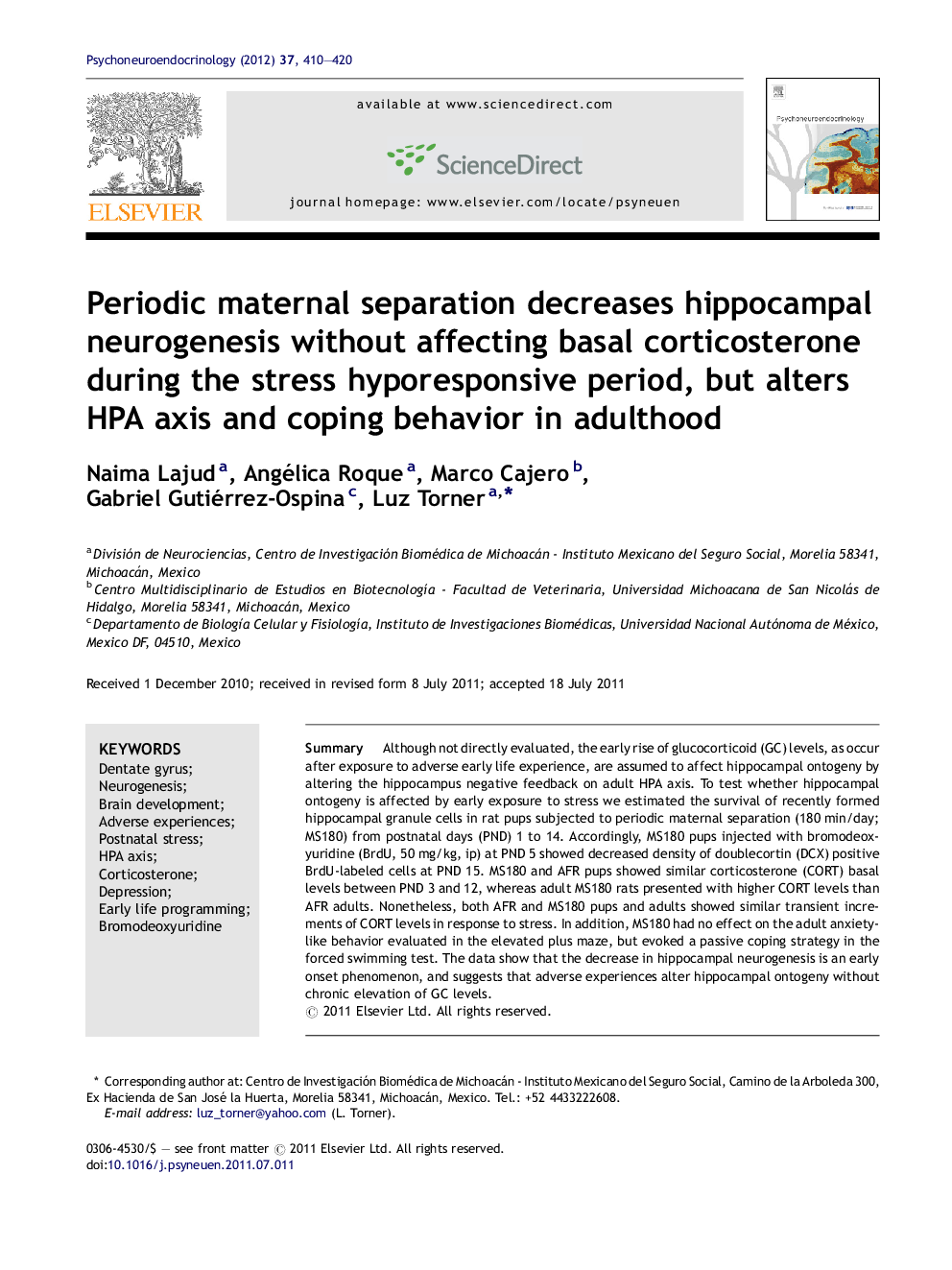| Article ID | Journal | Published Year | Pages | File Type |
|---|---|---|---|---|
| 10306922 | Psychoneuroendocrinology | 2012 | 11 Pages |
Abstract
Although not directly evaluated, the early rise of glucocorticoid (GC) levels, as occur after exposure to adverse early life experience, are assumed to affect hippocampal ontogeny by altering the hippocampus negative feedback on adult HPA axis. To test whether hippocampal ontogeny is affected by early exposure to stress we estimated the survival of recently formed hippocampal granule cells in rat pups subjected to periodic maternal separation (180Â min/day; MS180) from postnatal days (PND) 1 to 14. Accordingly, MS180 pups injected with bromodeoxyuridine (BrdU, 50Â mg/kg, ip) at PND 5 showed decreased density of doublecortin (DCX) positive BrdU-labeled cells at PND 15. MS180 and AFR pups showed similar corticosterone (CORT) basal levels between PND 3 and 12, whereas adult MS180 rats presented with higher CORT levels than AFR adults. Nonetheless, both AFR and MS180 pups and adults showed similar transient increments of CORT levels in response to stress. In addition, MS180 had no effect on the adult anxiety-like behavior evaluated in the elevated plus maze, but evoked a passive coping strategy in the forced swimming test. The data show that the decrease in hippocampal neurogenesis is an early onset phenomenon, and suggests that adverse experiences alter hippocampal ontogeny without chronic elevation of GC levels.
Keywords
Related Topics
Life Sciences
Biochemistry, Genetics and Molecular Biology
Endocrinology
Authors
Naima Lajud, Angélica Roque, Marco Cajero, Gabriel Gutiérrez-Ospina, Luz Torner,
